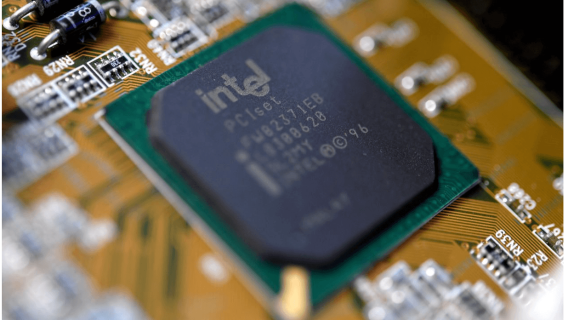Intel has announced it has selected Ohio for a new semiconductor manufacturing operation that would cost at least $20 billion to increase U.S. production of computer chips.
President Biden has met with Intel CEO Patrick Gelsinger several times to discuss the project and the need for taxpayer-funded subsidies. The subject of an equity investment, or returns tied to Intel stock, has not been broached.
I have always been a great supporter of expanding capitalism and the free market, but in some situations, private investors hesitate to invest in strategic areas critical to America’s economic and national security. This may be because of lower near-term expected returns on investments requiring significant upfront capital or for highly speculative leapfrog technologies.
[text_ad]
Clearly, the federal government has a poor record in picking companies and a mixed record in picking sectors. But for funding strategically important areas that require special attention from an economic security and national security viewpoint, technical skill and independent judgment are essential. You don’t want Congressional staffers or bureaucrats making calls on fourth-generation nuclear energy technology, semiconductor fabrication, and critical materials like rare earths.
These sectors also present the American taxpayer with a chance to earn a handsome reward for putting their taxpayer funds at risk while sharing this risk with private investors. For way too long, business has received financial support borne by taxpayers but then taxpayers receive nothing in return. Here is just one cringeworthy example. The U.S. Department of Energy made a $465 million loan to Tesla and didn’t even ask for stock or warrants.
In short, America has enough debt – as the representatives of the American taxpayer, Congress should demand Intel stock for providing any financial assistance to companies like Intel.
I have a better idea than this scattershot approach that does not directly reward the American taxpayer – an American sovereign wealth fund. This independent, professionally managed fund would be majority-owned by and through shares issued to every American citizen. This is just the sort of big centrist idea that will both expand capitalism while befuddling and outflanking the radical, big-spending left.
It could also be a key tool to winning in the age of U.S.-China rivalry.
A sovereign wealth fund is an endowment fund owned by the citizens of a country though normally ownership and funds flow through their central government. Dozens of countries, and even some U.S. states such as Alaska, already have such a fund. Singapore has two such funds. Australia has a $2.5 trillion pension fund system and Canada’s pension fund has invested $180 billion in private investments over the last decade, according to the Financial Times.
Under the supervision of the U.S. Treasury, with a non-partisan board and top-notch management, there would be safeguards to ensure that the sovereign wealth fund’s management would be apolitical with complete transparency.
An excellent example of this approach was the founding of Taiwan Semiconductor (TSM), now the world’s leader in producing microchips with complete domination of high-performance microchips. It was formed when the Taiwanese government persuaded the Dutch multinational Philips to partner alongside several local private firms to start a chip foundry in 1987 while providing half of the start-up costs. The Taiwanese government invested 21% of the start-up capital, Philips contributed 28%, and other private investors provided the rest.
Both Intel and Texas Instruments declined to participate.
The founding CEO of Taiwan Semiconductor, Morris Chang, was born in Mainland China, leaving for Hong Kong during the Chinese Civil War in the 1940s. Chang ended up earning his bachelor’s and master’s degrees in mechanical engineering degrees from the Massachusetts Institute of Technology, became a U.S. citizen, and then spent a quarter century working at Texas Instruments, with responsibility for its worldwide semiconductor business. Texas Instruments also sent him to Stanford University, where he was awarded his doctorate in electrical engineering.
In 1997, Taiwan Semiconductor listed its stock on the New York Stock Exchange and now has a market value over $500 billion. The company now makes 12 million semiconductor wafers a year and has over 50,000 employees.
So as Intel maneuvers for CHIPS Act federal money to subsidize new fabrication technology, the sovereign wealth fund would make sure that any federal money would be closely tied to Intel stock so that if Intel succeeds, all Americans gain.
[author_ad]
